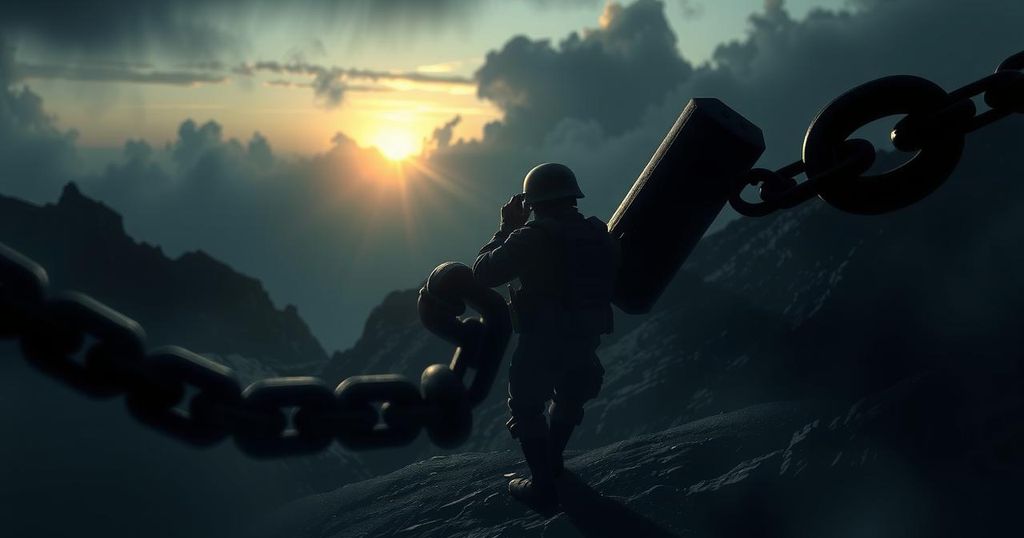The ongoing conflict with the M23 militia in eastern Congo reveals the Congolese army’s structural weaknesses, including corruption and poor military financing. M23 has captured significant territory, undermining President Tshisekedi’s military initiatives and leading to a loss of domestic support. External support from Rwanda further complicates the situation, which highlights internal vulnerabilities within the Congolese government.
The recent conflict involving the M23 militia in eastern Congo has highlighted the severe deficiencies within the Congolese military. Despite its large size, the army is plagued by issues such as corruption, inadequate funding, and internal strife, which have severely undermined its operational effectiveness. Soldiers are poorly paid and lack proper weapons, leading to a dysfunctional force unable to counter the militia’s advances.
M23 has gained significant ground, capturing two major cities, two airports, and extensive territory in eastern Congo. President Félix Tshisekedi’s attempts to bolster military capabilities prior to the conflict have faltered under the rising threat posed by M23. Consequently, he faces diminishing domestic support, stalled peace negotiations with regional actors, and insufficient international backing.
Additionally, external influences have complicated the situation, notably Rwanda’s support for M23. According to United Nations reports, Rwandan troops have provided training and resources to the rebel faction. Despite Rwanda’s acknowledgment of its troops being present in Congo, it continues to deny any control over M23, contributing to the ongoing complexity of the conflict.
Fred Bauma, executive director of the Ebuteli research institute, noted that the conflict stems from two primary factors: the internal weaknesses of the Congolese government and external support from Rwanda for the M23 militia. In a recent conversation with The New York Times, President Tshisekedi placed blame on his predecessor, asserting that past failures led to foreign infiltration in the army, exacerbating the current crisis.
The conflict in eastern Congo reflects deep-rooted issues within the Congolese military, plagued by corruption, weak leadership, and external interference. Despite efforts by President Tshisekedi to strengthen the army, M23 has successfully exploited these vulnerabilities. With foreign support complicating the situation further, the Congolese government faces significant challenges in restoring stability and sovereignty in the region.
Original Source: www.nytimes.com




